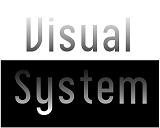The implementation of EU free trade agreements has been a hot topic in recent years. These agreements are designed to lower trade barriers and increase economic growth by facilitating the exchange of goods and services between the European Union and other countries. However, the process of implementing these agreements can be complex, and there are often many challenges that arise along the way.
One of the biggest challenges in implementing free trade agreements is ensuring that all parties involved are on board. This can involve negotiating terms and conditions, addressing concerns about potential negative impacts on certain industries, and dealing with political opposition. It can take years of negotiations to reach a final agreement, and even then, there may be challenges to its implementation.
Another challenge in implementing free trade agreements is ensuring that they are actually enforced. This can involve setting up mechanisms for monitoring compliance, as well as addressing any violations that occur. This can be especially challenging in countries where corruption is rampant or where there is a weak rule of law.
Despite these challenges, the benefits of free trade agreements are significant. By facilitating trade between countries, these agreements can help to boost economic growth and create new opportunities for businesses. They can also help to promote greater political stability by fostering closer ties between nations.
To ensure that free trade agreements are implemented successfully, it is important to have a clear understanding of the terms and conditions involved. This can involve working closely with legal experts and economic advisors to identify potential challenges and opportunities. It is also important to be proactive in addressing any concerns that arise, whether they are related to specific industries or to broader political issues.
Ultimately, the successful implementation of free trade agreements requires strong leadership, careful planning, and a willingness to work collaboratively with other countries. By taking a strategic approach and focusing on the long-term benefits of free trade, it is possible to overcome the challenges and create a more prosperous, interconnected world.
